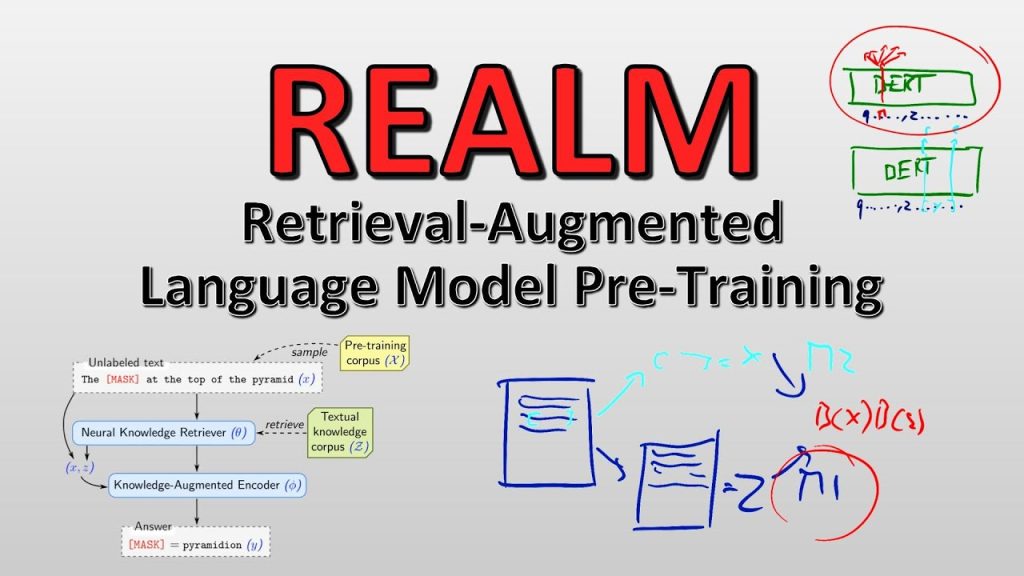#ai #tech #science
Open Domain Question Answering is one of the most challenging tasks in NLP. When answering a question, the model is able to retrieve arbitrary documents from an indexed corpus to gather more information. REALM shows how Masked Language Modeling (MLM) pretraining can be used to train a retriever for relevant documents in an end-to-end fashion and improves over state-of-the-art by a significant margin.
OUTLINE:
0:00 – Introduction & Overview
4:30 – World Knowledge in Language Models
8:15 – Masked Language Modeling for Latent Document Retrieval
14:50 – Problem Formulation
17:30 – Knowledge Retriever Model using MIPS
23:50 – Question Answering Model
27:50 – Architecture Recap
29:55 – Analysis of the Loss Gradient
34:15 – Initialization using the Inverse Cloze Task
41:40 – Prohibiting Trivial Retrievals
44:05 – Null Document
45:00 – Salient Span Masking
50:15 – My Idea on Salient Span Masking
51:50 – Experimental Results and Ablations
57:30 – Concrete Example from the Model
Paper:
Code:
My Video on GPT-3:
My Video on BERT:
My Video on Word2Vec:
Abstract:
Language model pre-training has been shown to capture a surprising amount of world knowledge, crucial for NLP tasks such as question answering. However, this knowledge is stored implicitly in the parameters of a neural network, requiring ever-larger networks to cover more facts.
To capture knowledge in a more modular and interpretable way, we augment language model pre-training with a latent knowledge retriever, which allows the model to retrieve and attend over documents from a large corpus such as Wikipedia, used during pre-training, fine-tuning and inference. For the first time, we show how to pre-train such a knowledge retriever in an unsupervised manner, using masked language modeling as the learning signal and backpropagating through a retrieval step that considers millions of documents.
We demonstrate the effectiveness of Retrieval-Augmented Language Model pre-training (REALM) by fine-tuning on the challenging task of Open-domain Question Answering (Open-QA). We compare against state-of-the-art models for both explicit and implicit knowledge storage on three popular Open-QA benchmarks, and find that we outperform all previous methods by a significant margin (4-16% absolute accuracy), while also providing qualitative benefits such as interpretability and modularity.
Authors: Kelvin Guu, Kenton Lee, Zora Tung, Panupong Pasupat, Ming-Wei Chang
Links:
YouTube:
Twitter:
Discord:
BitChute:
Minds:
Parler:
LinkedIn:
If you want to support me, the best thing to do is to share out the content 🙂
If you want to support me financially (completely optional and voluntary, but a lot of people have asked for this):
SubscribeStar:
Patreon:
Bitcoin (BTC): bc1q49lsw3q325tr58ygf8sudx2dqfguclvngvy2cq
Ethereum (ETH): 0x7ad3513E3B8f66799f507Aa7874b1B0eBC7F85e2
Litecoin (LTC): LQW2TRyKYetVC8WjFkhpPhtpbDM4Vw7r9m
Monero (XMR): 4ACL8AGrEo5hAir8A9CeVrW8pEauWvnp1WnSDZxW7tziCDLhZAGsgzhRQABDnFy8yuM9fWJDviJPHKRjV4FWt19CJZN9D4n
source

